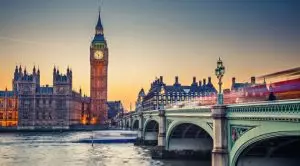 About a decade ago, Prime Minister Blair’s Government rolled out the 2005 Gambling Act which was aimed at making a change that proved impossible to pull off. At the time when the Gambling Act was implemented, it has been presented as the piece of legislation which would impose “the toughest rules and the most powerful regulator” worldwide, but at the same time an act that would guarantee that the UK would be “the least restricted” gambling regime on the territory of Europe.
About a decade ago, Prime Minister Blair’s Government rolled out the 2005 Gambling Act which was aimed at making a change that proved impossible to pull off. At the time when the Gambling Act was implemented, it has been presented as the piece of legislation which would impose “the toughest rules and the most powerful regulator” worldwide, but at the same time an act that would guarantee that the UK would be “the least restricted” gambling regime on the territory of Europe.
Currently, the Labour party get involved in many discussions in terms of the gambling industry in the UK, with its deputy leader Tom Watson describing the situation as a “hidden epidemic”.
It is true that the 2005 Gambling Act left certain loopholes which created some conditions for industry exploitation to flourish, with possible gambling-related harm being blamed for constantly rising levels of gambling addiction. The UK Government took some time before it eventually decided that the notorious fixed-odds betting terminals (FOBTs) need to be restricted in order to better protect local problem gamblers and more vulnerable individuals.
At the same time, however, the number of problem gamblers has not declined, and more people suffer from gambling-related harm, with gambling operators being provided with the chance to air their commercials both on TV and online during live sports broadcasts, targeting more people every day.
UK Government Takes Measures to Tackle Gambling-Related Harm
 There is hardly a commercial break at half-time or other breaks in live sports events which do not display a gambling operator and its services. As Casino Guardian has already revealed, football is usually the main focus of such adverts, but the latter are also aired during cricket, rugby, golf, and other sports as well.
There is hardly a commercial break at half-time or other breaks in live sports events which do not display a gambling operator and its services. As Casino Guardian has already revealed, football is usually the main focus of such adverts, but the latter are also aired during cricket, rugby, golf, and other sports as well.
That is exactly the reason why the Labour party has insisted that stricter measures need to be taken in order for better control is imposed on the local gambling industry. Despite the fact that gambling operators and their services are a massive revenue source for the time being, further control needs to be imposed in order for local people to be better protected against possible gambling-related harm. Back in 2017, a research showed that the overall gross revenue generated by the UK gambling sector amounted to approximately £14 billion, with the figure representing a 65% increase in comparison to the gross revenue generated a decade ago.
Considering the failures of the 2005 Gambling Act, the Government needs to take consistent measures in order to make sure that local communities are well-protected against possible negative consequences from gambling. A few months ago, the UK Government announced its decision to slash the existing maximum bet at the controversial fixed-odds betting machines from £100 to £2 in order to tackle constantly spreading gambling addiction among local citizens.
The Government has also been focused on discussing and imposing stricter measures on gambling advertising in the country so that the possible harmful influence that such commercials could have on under-aged individuals as well as on more vulnerable people.
- Author


